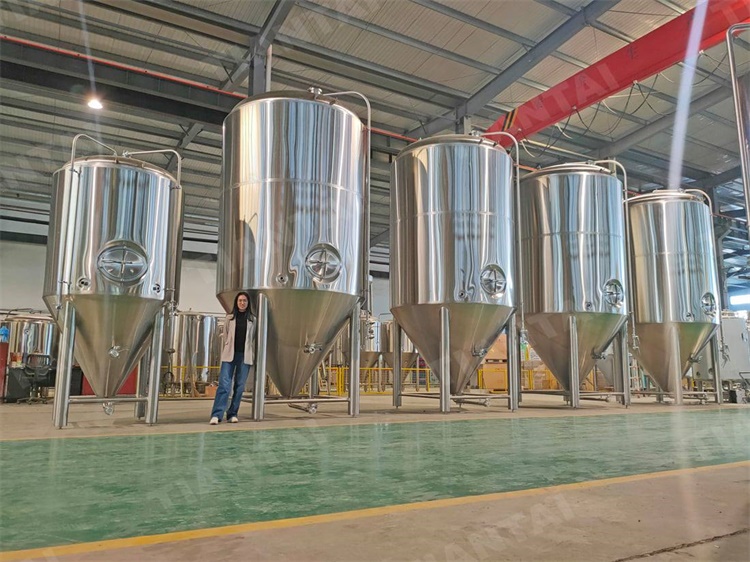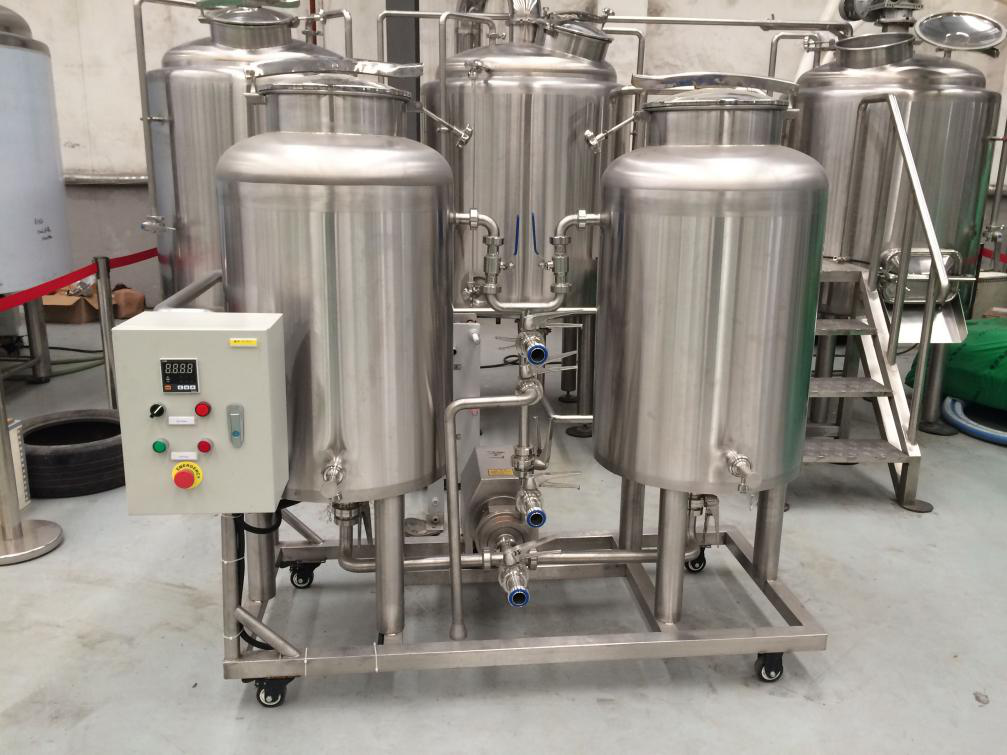Fermentation Vessels: Fermentation vessels are the heart of any kombucha factory. They are large-scale vessels that can hold hundreds or thousands of gallons of tea and kombucha culture. The most common type of fermentation vessel is a stainless steel tank, which is easy to clean, durable, and can withstand high pressure. Other options include glass carboys, ceramic crocks, and food-grade plastic barrels.
Boil Kettles: Kettles are used to heat the water and steep the tea leaves. In a kombucha factory, large commercial-grade kettles are used, capable of heating hundreds or thousands of gallons of water at once. They are often made of stainless steel, which is easy to clean and maintain.
.jpg)
Pumps and Hoses: Pumps and hoses are used to transfer the tea and kombucha culture from the kettles to the fermentation vessels. They are also used to transfer the finished kombucha from the fermentation vessels to the bottling area. Food-grade hoses are used to ensure that the kombucha remains free from contaminants.
Pasteurization Equipment: Pasteurization is the process of heating the kombucha to a temperature that kills any harmful bacteria, yeast, or other microorganisms. This process extends the shelf life of the kombucha and ensures that it is safe to drink. Pasteurization equipment can be in the form of a heat exchanger, which quickly heats and cools the kombucha, or a batch pasteurizer, which heats the kombucha in batches.
Filtration Equipment: Filtration equipment is used to remove any sediment or impurities from the kombucha before bottling. This can be in the form of a filter press, which presses the kombucha through a filter cloth, or a cartridge filter, which uses a replaceable filter to remove any impurities.
Bottling Line: A bottling line is used to fill and cap the bottles of finished kombucha. It typically includes a bottle rinser, a filling machine, a capping machine, and a labeling machine. The bottling line can be automated or manual, depending on the size of the factory.
Storage Tanks: Storage tanks are used to store the finished kombucha before it is bottled. They can be made of stainless steel or food-grade plastic and are equipped with temperature control systems to ensure that the kombucha remains at the correct temperature and pressure.
Laboratory Equipment: A kombucha factory also requires laboratory equipment to test the pH, acidity, and other parameters of the kombucha. This includes pH meters, titrators, and spectrophotometers.
Tiantai company supply a range of specialized equipment to produce high-quality kombucha on a commercial level, includes fermentation vessels, kettles, pumps and hoses, pasteurization equipment, filtration equipment, bottling lines, storage tanks, and laboratory equipment. Each piece of equipment plays a crucial role in ensuring that the kombucha is safe, delicious, and meets the high standards of the industry.
[email protected]
Emily Gong


.jpg)



Get In Touch